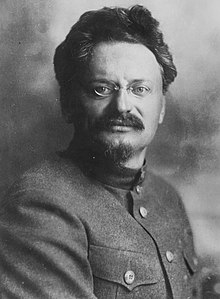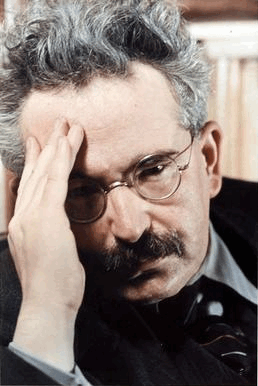マルクス主義者たち:人間の活動を生成する二次的な場:「文化」概念の検討
The Marxist's concept and notion on
"Culture"




マルクス主義者たち:人間の活動を生成する二次的な場:「文化」概念の検討
The Marxist's concept and notion on
"Culture"




解説:池田光穂
マルクス主義者の文化 概念は、文化が歴史的、社会的要因のもとで決定されると考える傾向にあ る。文化は階級構造、経済システム、政治組織と密接に関わり、とくに文化の質と規模を決定するのは特定の生産様式としての産業である(→生産様式)。
トロツキーは文化を「人類史を通して蓄積されてきたあらゆる知識と技術の総和であり・・・国家 や階級や・・・歴史上の人物の技術と知識が結合してできたもの」としている。(トロツキー「レーニン主義と図書館仕事」:スウィングウッド『大衆文化の神 話』1982:50より引用)
他方、グラムシによると、文化は「人間の内面生活の組織化された鍛錬の場であり‥‥人格形成場 面であり‥‥超自我を獲得する場でもある。それによって、われわれは自己の歴史的価値・人生において果たすべき役割・権利や義務などを理解できるようにな る」という。(スウィングウッド『大衆文化の神話』1982:54より引用)
「文化は中立的な概念ではなく、歴史的・個別的・イデ オロギー的概念である」(スウィングウッ ド,1982:48)『大衆文化の神話』東京創元社
マルクス主義者たちは、(ヴァルター・ ベンヤミンなどを除けば)「上部構造」としての文化を独自 に研究したものではないので——つまり下部構造の関係を重視するので——上掲のように、文化を、人間の活動を生成する、ある種の二次的な場として理解する 傾向がある。
| Marx's notebooks on
the history of technology Karl Marx wrote a number of notebooks on the history of technology which so far remain unpublished in English. Their whereabouts[1] were for a long time unknown but in the past they were read and discussed by Marxist researchers. History Engels lists Marx's collection of material on technology as one of Marx's "specialisms" in correspondence outlining their mutual division of intellectual labour.[2] Marx directly refers to the notebooks in his letter to Engels of January 28, 1863 where he says … I have re-read my notebooks (extracts) on technology, and am attending a practical (only experimental) course for workers on the same by Professor Willis (in Jermyn Street, the Institute for Geology, where Huxley also gave his lectures)… While re-reading the technological-historical excerpts, I came to the conclusion that , apart from the invention of gun-powder, the compass and printing - these necessary pre-requisites for bourgeois development - from the 16th to the mid-18th centuries, i.e. the period of the development of manufacture from craftsmanship until really large-scale industry, the two material foundations on which were based the preparations for mechanised industry within manufacturing were the clock and the mill … [2]: 82–84 Across his writing Marx makes frequent reference to his interest in technological developments, and these mentions are complemented by generic statements such as the need for a critical history of technology in the major footnote at the beginning of the chapter on "Machinery and Large Scale Industry" in Capital, Volume I.[3] “A critical history of technology would show how little any of the inventions of the 18th century are the work of a single individual. Hitherto there is no such book. Darwin has interested us in the history of Nature's Technology, i.e., in the formation of the organs of plants and animals, which organs serve as instruments of production for sustaining life. Does not the history of the productive organs of man, of organs that are the material basis of all social organisation, deserve equal attention? And would not such a history be easier to compile, since, as Vico says, human history differs from natural history in this, that we have made the former, but not the latter? Technology discloses man's mode of dealing with Nature, the process of production by which, he sustains his life, and thereby also lays bare the mode of formation of his social relations, and of the mental conceptions that flow from them.” (MECW Vol 35.375)[4] Commentary and sources György Lukács studied these notebooks while they existed in the archives in Moscow, and appears to refer to them in a 1925 article later published in English translation in the New Left Review criticizing what he saw as Bukharin's undue technicism.[5][6] Lukács added a commentary on the methodological importance of this critique to the preface to the new edition (1967) of the English Merlin 1971 translation of History and Class Consciousness.[7] Excerpts of Marx's notebooks are held in the International Institute of Social History.[8] Nathan Rosenberg published an essay on "Marx as a student of technology" in his Inside the Black Box;[9] Donald MacKenzie wrote "Marx and the Machine" in Technology and Culture, which can also be found in a book of essays he edited called 'Knowing Machines' (1998);[10] and Amy E. Wendling published a book on the notebooks entitled Karl Marx on Technology and Alienation (2009).[11] Lucia Pradella in her study of Marx's London Notebooks[12] cites Hans-Peter Müller's transcribed edition in German.[13] |
カール・マルクスの技術の歴史に関するノート カール・マルクスは技術史に関する多くのノートを書いているが、今のところ英語では未発表のままである。その所在[1]は長い間不明であったが、過去には マルクス主義の研究者たちによって読まれ、議論されていた。 歴史 エンゲルスは、マルクスの知的労働の相互分担を概説する書簡の中で、技術に関するマルクスの資料収集をマルクスの「専門分野」の一つとして挙げている [2]。 マルクスは1863年1月28日のエンゲルスへの手紙の中で、このノートブックに直接言及している。 技術に関する私のノート(抜粋)を再読し、ウィリス教授による労働者向けの実践的(実験的なものだけ)な講座(ジャーミンストリート、ハクスリーも講義を 行った地質学研究所)に出席している......技術史的な抜粋を再読しているうちに、私は、火薬、羅針盤、印刷の発明は別として、ブルジョア的発展のた めに必要な前提条件として、16世紀から18世紀半ばまで、すなわち、ブルジョア的発展のために必要な前提条件として、火薬、羅針盤、印刷の発明があった という結論に達した。 すなわち、職人技から本当に大規模な工業にいたるまでの製造業の発展期において、製造業における機械化された工業の準備の基礎となった二つの物質的基礎 は、時計と粉砕機であった... [2]: 82-84 マルクスは、その著作全体にわたって、技術的発展への関心について頻繁に言及しており、これらの言及は、『資本論』第1巻の「機械と大規模産業」の章の冒 頭の主要な脚注における技術批判史の必要性のような一般的な記述によって補完されている[3]。 「技術史の批評は、18世紀の発明がいかに一個人の作品にすぎないかを示すだろう。これまでそのような本はない。ダーウィンは、自然の技術の歴史、すなわ ち動植物の器官の形成に関心を寄せている。器官は生命を維持するための生産手段として機能している。人間の生産器官、すなわちすべての社会組織の物質的基 礎である器官の歴史は、同じように注目されるに値しないだろうか。ヴィーコが言うように、人間の歴史は自然史とは異なり、前者は作ったが後者は作っていな いのだから。技術は、人間の自然との付き合い方、それによって人間が生命を維持する生産過程を開示し、それによって人間の社会的関係の形成様式と、そこか ら派生する精神的観念をも露わにする。(MECW 35巻375節)[4]。 解説と出典 ギョルジ・ルカーチは、モスクワの公文書館に保管されていたこれらのノートを研究し、後に『新左翼論集』に英訳を発表した1925年の論文で、ブハーリン の過度な技術主義を批判している。 [5][6]ルカーチはこの批判の方法論的重要性についての解説を、1971年にマーリンによって翻訳された『歴史と階級意識』の新版(1967年)の序 文に付け加えている[7]。 ネイサン・ローゼンバーグは『Inside the Black Box』の中で「テクノロジーの研究者としてのマルクス」に関するエッセイを発表している[9]。ドナルド・マッケンジーは『Technology and Culture』の中で「マルクスと機械」を書いており、これは彼が編集したエッセイ集『Knowing Machines』(1998年)にも収録されている[10]。ウェンドリングは『Karl Marx on Technology and Alienation』(2009年)というノートに関する本を出版している[11]。ルチア・プラデラはマルクスのロンドン・ノートに関する研究 [12]の中で、ハンス=ペーター・ミュラーによるドイツ語の書き写し版を引用している[13]。 |
| https://en.wikipedia.org/wiki/Marx%27s_notebooks_on_the_history_of_technology |
|
| In Marxist philosophy, cultural
hegemony
is the dominance of a culturally diverse society by the ruling class
who shape the culture of that society—the beliefs and explanations,
perceptions, values, and mores—so that the worldview of the ruling
class becomes the accepted cultural norm.[1] As the universal dominant
ideology, the ruling-class worldview misrepresents the social,
political, and economic status quo as natural, inevitable, and
perpetual social conditions that benefit every social class, rather
than as artificial social constructs that benefit only the ruling
class.[2][3] In philosophy and in sociology, the denotations and the connotations of term cultural hegemony derive from the Ancient Greek word hegemonia (ἡγεμονία), which indicates the leadership and the régime of the hegemon.[4] In political science, hegemony is the geopolitical dominance exercised by an empire, the hegemon (leader state) that rules the subordinate states of the empire by the threat of intervention, an implied means of power, rather than by threat of direct rule—military invasion, occupation, and territorial annexation.[5][6] |
マ
ルクス主義哲学において、文化的覇権(=文化ヘゲモニー)とは、支配階級の世界観が文化的規範として受け入れられるように、その社会の文化(信念や説明、
認識、価値観、風俗)を形成する支配階級によって、文化的に多様な社会が支配されることである[1]。普遍的な支配イデオロギーとして、支配階級の世界観
は、社会的、政治的、経済的現状を、支配階級のみに利益をもたらす人為的な社会構成としてではなく、あらゆる社会階級に利益をもたらす自然で必然的で永続
的な社会状況として誤って表現する[2][3]。 哲学や社会学において、文化的ヘゲモニーという用語の意味合いや含蓄は、ヘゲモニーのリーダーシップや体制を示す古代ギリシャ語のヘゲモニア (ἡγεμονία)に由来している。 [政治学においては、覇権は帝国によって行使される地政学的支配であり、覇権国家(リーダー国家)は、直接的な支配(軍事的侵略、占領、領土の併合)の脅 威によってではなく、権力の暗黙の手段である介入の脅威によって帝国の従属国家を支配する[5][6]。 |
| In 1848, Karl Marx proposed that
the economic recessions and practical contradictions of a capitalist
economy would provoke the working class to proletarian revolution,
depose capitalism, restructure social institutions (economic,
political, social) per the rational models of socialism, and thus begin
the transition to a communist society. Therefore, the dialectical
changes to the functioning of the economy of a society determine its
social superstructures (culture and politics). To that end, Antonio Gramsci proposed a strategic distinction between the politics for a War of Position and for a War of Manœuvre. The war of position is an intellectual and cultural struggle wherein the anti-capitalist revolutionary creates a proletarian culture whose native value system counters the cultural hegemony of the bourgeoisie. The proletarian culture will increase class consciousness, teach revolutionary theory and historical analysis, and thus further develop revolutionary organisation among the social classes.[7] After winning the war of position, socialist leaders would then have the necessary political power and popular support to realise the war of manœuvre, the political praxis of revolutionary socialism. Political economy As Marxist philosophy, cultural hegemony analyses the functions of economic class within the base and superstructure, from which Gramsci developed the functions of social class within the social structures created for and by cultural domination. In the practise of imperialism, cultural hegemony occurs when the working and the peasant classes believe and accept that the prevailing cultural norms of a society (the dominant ideology imposed by the ruling class) realistically describes the natural order of things in society. In the war for position, the working-class intelligentsia politically educate the working classes to perceive that the prevailing cultural norms are not natural and inevitable social conditions, and to recognize that the social constructs of bourgeois culture function as instruments of socio-economic domination, e.g. the institutions (state, church, and social strata), the conventions (custom and tradition), and beliefs (religions and ideologies), etc. That to realise their own working-class culture the workers and the peasants, by way of their own intellectuals, must perform the necessary analyses of their culture and national history in order for the proletariat to transcend the old ways of thinking about the order of things in a society under the cultural hegemony of an imperial power. Social domination Gramsci said that cultural and historical analyses of the "natural order of things in society" established by the dominant ideology, would allow common-sense men and women to intellectually perceive the social structures of bourgeois cultural hegemony. In each sphere of life (private and public) common sense is the intellectualism with which people cope with and explain their daily life within their social stratum within the greater social order; yet the limits of common sense inhibit a person's intellectual perception of the exploitation of labour made possible with cultural hegemony. Given the difficulty in perceiving the status quo hierarchy of bourgeois culture (social and economic classes), most people concern themselves with private matters, and so do not question the fundamental sources of their socio-economic oppression, individual and collective.[8] |
1848年、カール・マルクスは、資本主義経済の経済不況と現実的矛盾
が労働者階級をプロレタリア革命へと駆り立て、資本主義を退け、社会主義の合理的モデルに従って社会制度(経済、政治、社会)を再構築し、共産主義社会へ
の移行を開始すると提唱した。したがって、社会の経済の機能に対する弁証法的変化は、その社会の上部構造(文化と政治)を決定する。 そのために、アントニオ・グラムシは、「陣地戦争」のための政治と「作戦戦争」のための政治を戦略的に区別することを提案した。陣地戦争とは、反資本主義 革命家が、ブルジョアジーの文化的ヘゲモニーに対抗する固有の価値体系を持つプロレタリア文化を創造する知的・文化的闘争である。プロレタリア文化は、階 級意識を高め、革命理論と歴史分析を教え、社会階級間の革命的組織をさらに発展させる。地位の戦争に勝利した後、社会主義の指導者たちは、革命的社会主義 の政治的実践である作戦の戦争を実現するために必要な政治的権力と民衆の支持を得るだろう。 政治経済 マルクス主義哲学として、文化的覇権は、基層と上部構造における経済階級の機能を分析し、そこからグラムシは、文化的支配のために、また文化的支配によっ て生み出された社会構造における社会階級の機能を発展させた。帝国主義の実践において、文化的ヘゲモニーは、労働者階級と農民階級が、社会の一般的な文化 規範(支配階級が押し付ける支配的イデオロギー)が社会の自然な秩序を現実的に記述していると信じ、受け入れるときに生じる。 労働者階級の知識層は、地位争奪戦の中で、労働者階級を政治的に教育し、一般的な文化規範が自然で必然的な社会状況ではないことを認識させ、ブルジョア文 化の社会的構成要素が社会経済的支配の道具として機能していることを認識させる。労働者と農民は、自らの労働者階級の文化を実現するために、自らの知識人 たちによって、帝国権力の文化的ヘゲモニー下にある社会における物事の秩序についての古い考え方をプロレタリアートが超越するために、自分たちの文化と民 族の歴史について必要な分析を行わなければならない。 社会的支配 グラムシは、支配的イデオロギーによって確立された「社会における物事の自然な秩序」の文化的・歴史的分析によって、常識的な男女がブルジョア文化ヘゲモ ニーの社会構造を知的に認識できるようになると述べた。しかし、常識の限界は、文化的ヘゲモニーによって可能となった労働搾取に対する知的認識を阻害す る。ブルジョア文化(社会的・経済的階級)の現状階層を認識することが困難であることから、ほとんどの人々は私的な事柄に関心を持ち、個人的・集団的な社 会経済的抑圧の根本的な原因を問うことはない[8]。 |
| Intelligentsia To perceive and combat ruling-class cultural hegemony, the working class and the peasant class depend upon the moral and political leadership of their native intelligentsia, the scholars, academics, and teachers, scientists, philosophers, administrators et al. from their specific social classes; thus Gramsci's political distinction between the intellectuals of the bourgeoisie and the intellectuals of the working class, respectively, the men and women who are the proponents and the opponents of the cultural status quo: Since these various categories of traditional intellectuals experience through an esprit de corps their uninterrupted historical continuity, and their special qualifications, they thus put themselves forward as autonomous and independent of the dominant social group. This self-assessment is not without consequences in the ideological and political fields; consequences of wide-ranging import. The whole of idealist philosophy can easily be connected with this position, assumed by the social complex of intellectuals, and can be defined as the expression of that social utopia, by which the intellectuals think of themselves as "independent" [and] autonomous, [and] endowed with a character of their own, etc. — Selections from the Prison Notebooks of Antonio Gramsci (1971), pp. 7–8.[9] The traditional and vulgarized type of the intellectual is given by the Man of Letters, the philosopher, and the artist. Therefore, journalists, who claim to be men of letters, philosophers, artists, also regard themselves as the "true" intellectuals. In the modern world, technical education, closely bound to industrial labour, even at the most primitive and unqualified level, must form the basis of the new type of intellectual. . . . The mode of being of the new intellectual can no longer consist of eloquence, which is an exterior and momentary mover of feelings and passions, but in active participation in practical life, as constructor [and] organizer, as "permanent persuader", not just simple orator. — Selections from the Prison Notebooks of Antonio Gramsci (1971), pp. 9–10.[10] |
知識階級 支配階級の文化的ヘゲモニーを認識し、それに対抗するために、労働者階級と農民階級は、固有の社会階級出身の知識人、学者、学者、教師、科学者、哲学者、 行政官などの道徳的・政治的指導力に依存している。したがって、グラムシは、ブルジョアジーの知識人と労働者階級の知識人を政治的に区別し、それぞれ文化 的現状の支持者と反対者である男女を区別している: これらの伝統的知識人のさまざまなカテゴリーは、エスプリを通じて、途切れることのない歴史的連続性と特別な資格を体験しているため、支配的な社会集団か ら自立し、独立した存在として自らを主張する。このような自己評価は、イデオロギーや政治的な分野に影響を及ぼさないわけではない。観念論哲学の全体は、 知識人の社会的複合体によって想定されるこのような立場と容易に結びつけることができ、知識人が自分たちを「独立した」[自律した][独自の性格を備え た]存在であると考える、このような社会的ユートピアの表現として定義することができる。 - アントニオ・グラムシの獄中ノートからの選択』(1971年)、7-8頁[9]。 知識人の伝統的で低俗なタイプは、文学者、哲学者、芸術家によって与えられる。したがって、文学者、哲学者、芸術家を自称するジャーナリストもまた、自ら を「真の」知識人とみなしている。現代世界では、産業労働と密接に結びついた技術教育が、最も原始的で資格のないレベルであっても、新しいタイプの知識人 の基礎を形成しなければならない。. . . 新しい知識人の在り方は、もはや、感情や情念を外面的かつ瞬間的に動かす雄弁ではなく、建設者[および組織者]として、単なる弁舌家ではなく「永続的な説 得者」として、実践生活に積極的に参加することである。 - アントニオ・グラムシ獄中ノート』(1971年)9-10頁[10]より抜粋。 |
After Gramsci In 1968, Rudi Dutschke, a leader of the German student movement, the "68er-Bewegung", said that changing the bourgeois society of West Germany required a long march through the society's institutions, in order to identify and combat cultural hegemony.[11] German student movement In 1967, regarding the politics and society of West Germany, the leader of the German Student Movement, Rudi Dutschke, applied Gramsci's analyses of cultural hegemony using the phrase the "Long March through the Institutions" to describe the ideological work necessary to realise the war of position. The allusion to the Long March (1934–35) of the Chinese People's Liberation Army indicates the great work required of the working-class intelligentsia to produce the working-class popular culture with which to replace the dominant ideology imposed by the cultural hegemony of the bourgeoisie.[12][11] State apparatuses of ideology In Ideology and Ideological State Apparatuses (1970), Louis Althusser describes the complex of social relationships among the different organs of the State that transmit and disseminate the dominant ideology to the populations of a society.[13] The ideological state apparatuses (ISA) are the sites of ideological conflict among the social classes of a society; and, unlike the military and police forces, the repressive state apparatuses (RSA), the ISA exist as a plurality throughout society. Despite the ruling-class control of the RSA, the ideological apparatuses of the state are both the sites and the stakes (the objects) of class struggle, because the ISA are not monolithic social entities, and exist amongst society. As the public and the private sites of continual class struggle, the ideological apparatuses of the state (ISA) are overdetermined zones of society that are composed of elements of the dominant ideologies of previous modes of production, hence the continual political activity in: the religious ISA (the clergy) the educational ISA (the public and private school systems) the family ISA (patriarchal family) the legal ISA (police and legal, court and penal systems) the political ISA (political parties) the company union ISA the mass communications ISA (print, radio, television, internet, cinema) the cultural ISA (literature, the arts, sport, etc.)[14] The parliamentary structures of the State, by which elected politicians exercise the will of the people also are an ideological apparatus of the State, given the State's control of which populations are allowed to participate as political parties. In itself, the political system is an ideological apparatus, because citizens' participation involves intellectually accepting the ideological "fiction, corresponding to a 'certain' reality, that the component parts of the [political] system, as well as the principle of its functioning, are based on the ideology of the 'freedom' and 'equality' of the individual voters and the 'free choice' of the people's representatives, by the individuals that 'make up' the people".[15] |
グラムシ以後 1968年、ドイツの学生運動 "68er-Bewegung "の指導者であったルディ・ドゥチュケは、西ドイツのブルジョア社会を変えるには、文化的ヘゲモニーを特定し、それに対抗するために、社会の制度を通して 長い行進をする必要があると述べた[11]。 ドイツの学生運動 1967年、西ドイツの政治と社会に関して、ドイツ学生運動の指導者ルディ・ドゥチュケは、グラムシの文化的ヘゲモニーに関する分析を適用し、「制度を貫 く長征」という言葉を用いて、陣地戦争を実現するために必要なイデオロギー的作業を説明した。中国人民解放軍の長征(1934-35年)への言及は、ブル ジョアジーの文化的ヘゲモニーによって押しつけられた支配的なイデオロギーに取って代わる労働者階級の大衆文化を生み出すために労働者階級の知識人に要求 される偉大な仕事を示している[12][11]。 イデオロギーの国家機構 ルイ・アルチュセールは『イデオロギーとイデオロギー的国家装置』(1970年)の中で、支配的イデオロギーを社会の住民に伝達し広める国家のさまざまな 機関の間の複雑な社会的関係を描写している。 RSAの支配階級的な統制にもかかわら ず、国家のイデオロギー装置は、階級闘争の場であると ともに杭(対象)である。なぜなら、ISAは一枚岩の社 会的実体ではなく、社会の中に存在するからである。継続的な階級闘争の公の場と私的な場として、国家のイデオロギー装置(ISA)は、以前の生産様式の支 配的なイデオロギーの要素で構成される社会の過剰決定されたゾーンであり、それゆえ、以下のような政治的活動が継続的に行われている: 宗教ISA(聖職者) 教育ISA(公立・私立学校制度) 家族ISA(家父長的家族) 法的ISA(警察、法律、裁判所、刑罰制度) 政治ISA(政党) 企業組合ISA マス・コミュニケーションISA(印刷物、ラジオ、テレビ、インターネット、映画) 文化ISA(文学、芸術、スポーツなど)[14]。 選挙で選ばれた政治家が民意を行使するための国家の議会構造も、どの集団が政党として参加することを許されるかを国家が管理することを考えれば、国家のイ デオロギー的装置である。国民の参加は、[政治]システムの構成部分とその機能原理が、個々の有権者の「自由」と「平等」、そして国民の代表者の「自由な 選択」というイデオロギーに基づくという、イデオロギー的な「『ある』現実に対応する虚構」を、国民を『構成する』個人によって知的に受け入れることを含 むからである」[15]。 |
| Behavioral contagion –
Spontaneous, unsolicited and uncritical imitation of another's behavior Collective action problem – Type of social dilemma Cultural capital – Concept of social status and social mobility Cultural conflict – Clash of beliefs or values Domination and the Arts of Resistance: Hidden Transcripts (1990), by James C. Scott Focal point (game theory) – Concept in game theory Hegemonic masculinity – Concept in gender studies Hegemony and Socialist Strategy (1985), by Ernesto Laclau and Chantal Mouffe Herd behavior – Behavior of individuals acting in a group "Ideology and Ideological State Apparatuses" (1970), by Louis Althusser Marxist cultural analysis – Anti-capitalist cultural critique Marx's theory of alienation – Social theory claiming that capitalism alienates workers from their humanity Nicos Poulantzas – Marxist political sociologist and philosopher (1936–1979) Organic crisis – scenario of complete instability of a system Passive revolution – Years-long change in political order, in Gramscian discourse Political consciousness Posthegemony – Concept in political philosophy Sheeple Social capital – Networks of relationships among people who live and work in a particular society Soft power – Concept developed by Joseph Nye Southern strategy – 20th century Republican electoral strategy for the Southern US Subaltern (postcolonialism) – Concept from critical theory and post-colonial studies The Structural Transformation of the Public Sphere: An Inquiry into a Category of Bourgeois Society (1962), by Jürgen Habermas |
|
| https://en.wikipedia.org/wiki/Cultural_hegemony |
リンク(マルクス関係)
リンク
文献
その他の情報
++
Copyleft, CC, Mitzub'ixi Quq Chi'j, 1996-2099
☆
 ☆
☆